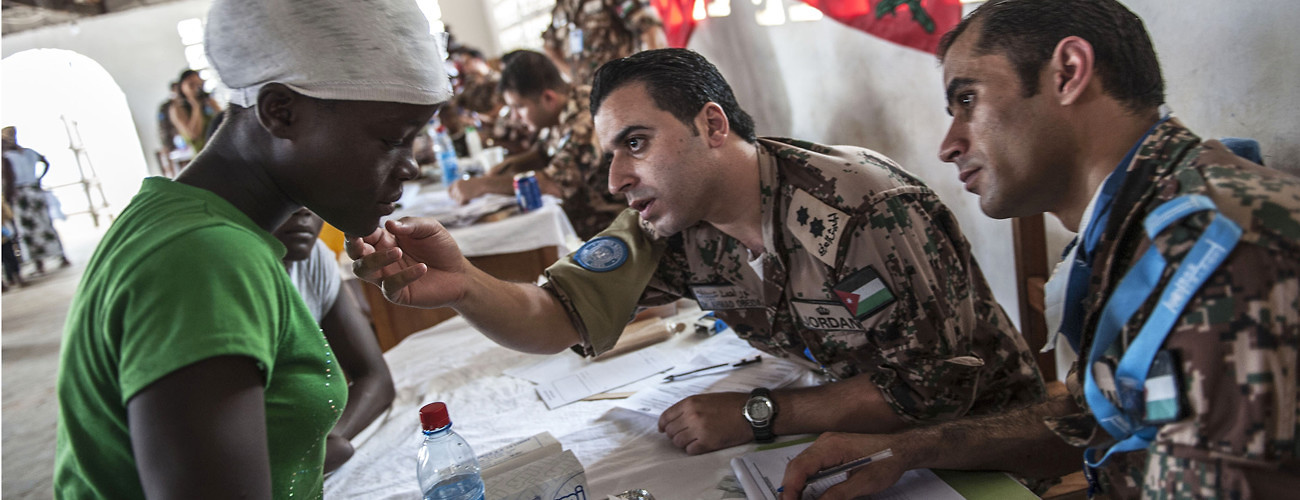Jordanian doctors look at a young Liberian womans face during health check-ups as part of a medical outreach performed by the Jordanian Leve III Medical Group, at the Virginia Christian Acadamy outside of Monrovia center, on Saturday 15 December, 2012. (UN Photo/Staton Winter)
Whether it’s the Ebola outbreak in West Africa or cholera in Haiti, health emergencies present particular challenges for United Nations peace operations. UN peacekeepers can contribute to a host population’s health by facilitating access for humanitarian aid agencies or delivering health assistance directly. But they can also present a health threat to the host population, and face health risks in challenging environments themselves.
The new IPI report “Healing or Harming?” explores the complex relationship between UN peacekeeping and health. In terms of challenges, it finds a need for greater attention to medical checks and health care provision for peacekeepers both before and during deployment. In terms of opportunities, the authors show that peacekeepers can play a vital role in delivering health care in emergency settings, as well as facilitating and assisting humanitarian access.
However, the authors shed light on the dilemmas raised by peacekeepers delivering health assistance, which is sometimes used to “win hearts and minds” and often is not in line with UN mandates or coordinated with humanitarian agencies. The authors argue that despite situations in which peacekeepers should play a direct role in delivering health assistance, the ultimate aim should be to support—not supersede—the work of humanitarian actors.
The authors’ recommendations include the following:
- The UN should tailor payments to troop-contributing countries specifically for pre-deployment health care, which would help ensure that peacekeepers undergo all necessary medical checks to protect their own health and that of the civilian populations they serve.
- Health impact assessments should be conducted prior to deployment and on an annual basis thereafter, to allow missions to monitor the impact peacekeepers have on the health of the host population and guide risk minimization strategies.
- The UN Department of Peacekeeping Operations’ principles and guidelines should be revised to more clearly identify the roles and responsibilities of UN peacekeepers vis-à-vis the Office for the Coordination of Humanitarian Affairs (OCHA), the host state, and other relevant agencies in the provision of humanitarian and health assistance.








